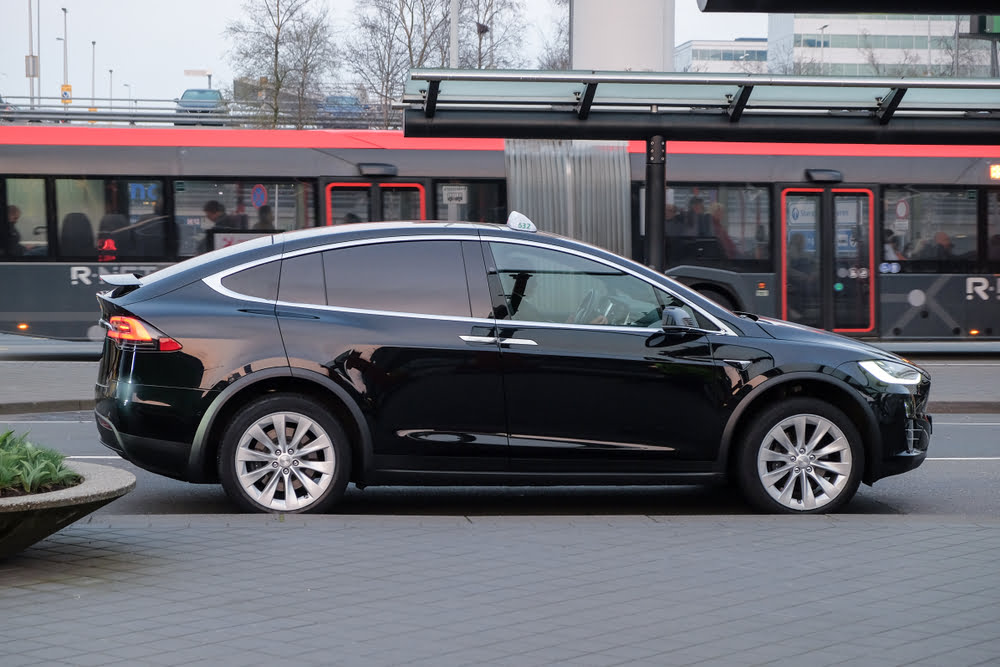On Friday 24 September, Inspector General Jan van den Bos of the Human Environment and Transport Inspectorate (ILT) paid a working visit to the municipality of Amsterdam. He became acquainted with Egbert de Vries, who has been alderman for traffic and transport, water and air quality in the city since January. Both were also present at a joint taxi check by the ILT, the Amsterdam BOAs and the police.
“The ILT and Amsterdam regularly work together at taxi checks. We will further intensify this cooperation by, for example, strengthening each other's information position. Together we want to be even better able to act against notorious violators of the rules. For example, we are committed to safe and fair taxi transport in the Amsterdam region.”
John van den Bosch.
National and municipal enforcement
During the visit, the Inspector General discussed cooperation with the municipality. The roles of the municipality and the ILT in the taxi market differ from each other. Enforcement by the ILT is mainly based on the Passenger Transport Act 2000 (Wp2000) and the Transport Working Hours Decree (Atb-v). The BOAs can act on the basis of the rules in the local taxi regulation for the boarding market and their powers, especially with regard to stationary traffic. These rules may impose requirements on the recognisability of the taxi, on drivers of the taxis and for the submission and handling of complaints.
The ILT checks, among other things, whether a driver has a (nationally) valid driver card, a national (Wp2000) permit or is employed by a taxi license holder and uses the obligatory taxi on-board computer. The ILT also checks compliance with working and rest times. The ILT does this both through checks on the street and through digital inspections.
The ILT therefore checks compliance with the nationally applicable rules and the municipal BOAs checks compliance with the rules for the local entry market. Van den Bos: “We can enforce more effectively by looking at who has which powers and where we can complement and strengthen each other.”
“The municipality has a wealth of information that can be helpful to the ILT. If drivers do not comply with the municipal rules, this may be an indication that they also do not comply with the rules of the Wp2000. By strengthening each other's information position, we can make smarter choices when deploying our capacity in order to achieve maximum social benefit.”
John van den Bosch.
Expansion of BOAs's tasks
In addition to exchanging information and joint checks, expanding the powers of municipal BOAs can also help. In Amsterdam, as in Rotterdam and Breda, there is now a pilot in which BOAs may enforce in areas that are normally reserved for the ILT and the police. This concerns the absence of the valid driver card, the transport of more people than for which the taxi has been approved, the use of an unapproved taxi and the failure to properly disclose the rates.
Joint enforcement action
The inspector-general and the alderman witnessed a joint control action on the Oosterdok on Friday by the ILT, Amsterdam police and BOAs. A total of 76 taxis were checked during this action. The ILT twice imposed a cease and desist order, in both cases the taxi drivers had not had enough rest. In addition, an official report was also drawn up twice for not keeping the journey administration in the on-board computer taxi. The police made several official reports, including because the driver's license or registration number did not meet the requirements or because the taxi driver was driving with slippery tyres. The municipality noted irregularities with the skylight on a number of occasions, according to the authorities inspection of living environment and transport.
“Friday it turned out once again that the cooperation on the street is in order. Our inspectors, the BOAs and the police: everyone knew what their role was. If we can extend this well-oiled machine in other areas, we will increase the effect of our joint supervision.”
John van den Bosch


